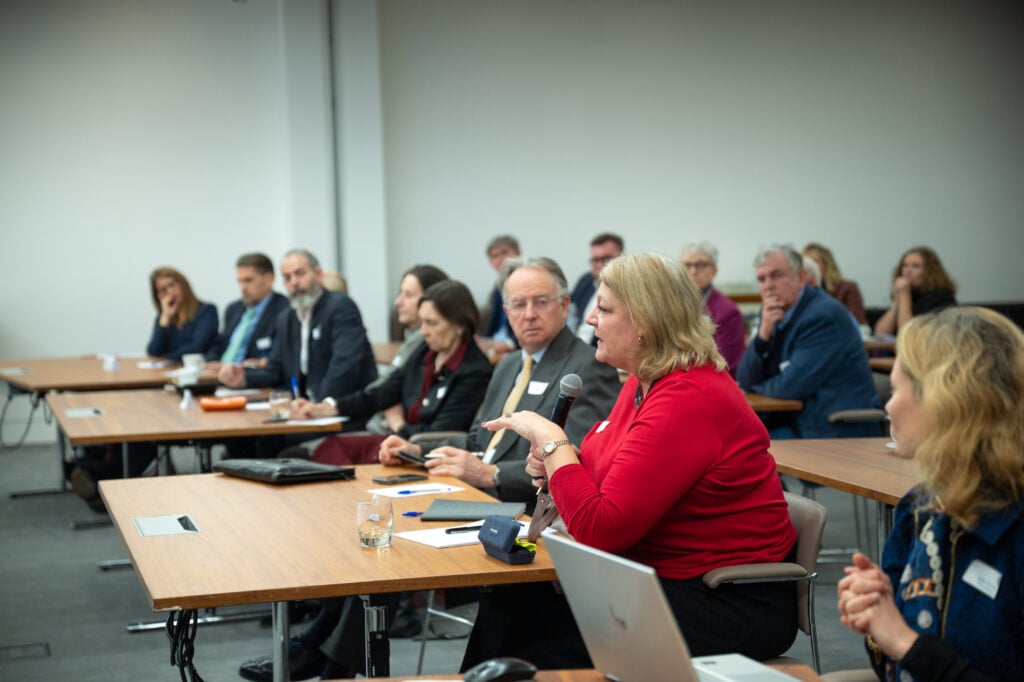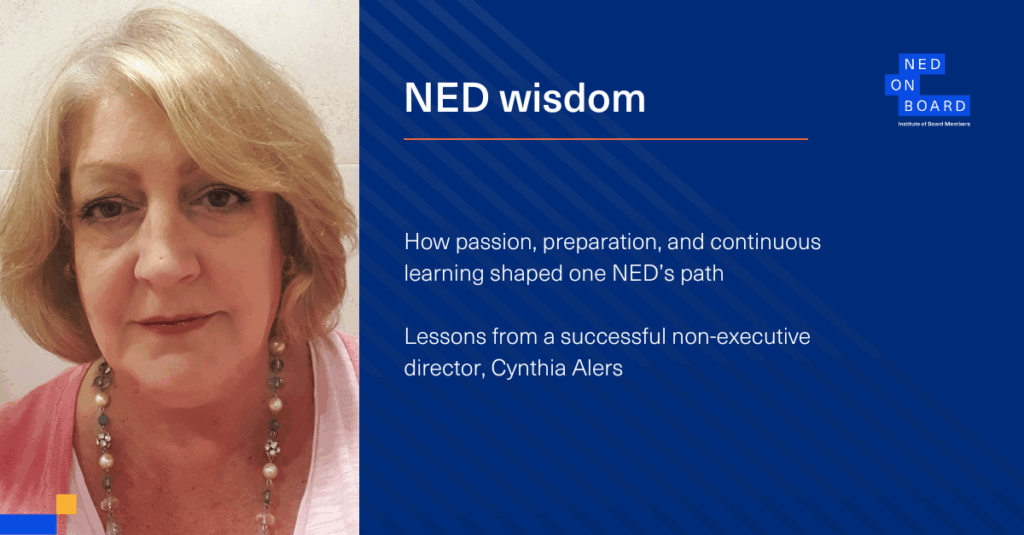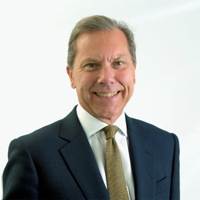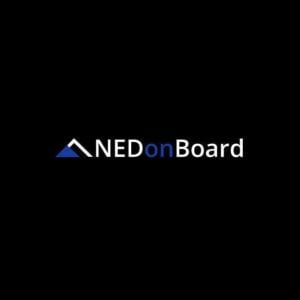How passion, preparation, and continuous learning shaped one NED’s path
What does it take to build a successful and diverse non-executive portfolio? For longstanding NEDonBoard member and portfolio NED Cynthia Alers, it comes down to three things: passion, professionalism, and continuous learning.
Having served on boards across housing, transport, charity, and now Natural England and the UK Endorsement Board, Cynthia Alers’ journey is one of strategic thinking, community involvement, and an unwavering commitment to good corporate governance. In this article, she shares the key ingredients of her success as well as why she continues to find value in her NEDonBoard membership.
Passion first: “What do you care deeply about?”
Cynthia does not apply for roles at random. “Applying for your first Board role is always a big step as it can define the next stage in your career. I applied to my first role as I was keen to do something outside my day job of corporate finance. I’m Dutch, so water, shipping and transport fascinated me. When I saw the role as a Board director at the Port of Dover advertised, I applied”.
Cynthia’s subsequent appointments with Orwell Housing, and now with Natural England and the UK Endorsement Board were driven by genuine interest in making a contribution in her board roles. “I had already been fund-raising for my local charity to increase biodiversity in our nature park, so when I saw the board role with Natural England, I applied. Communicating your passion in a board role helps you stand out. And with UK Endorsement Board, I’m drawn to the intellectual challenge of reporting and governance, which builds on my career experience,” she explained.
Passion is an anchor in the long process of researching, applying, interviewing, and ultimately serving. It also helps craft compelling motivation statements, as Cynthia puts it: “You have to figure out what you bring to the board and sell it.”
Rigorous preparation
While many start preparing once they are shortlisted, Cynthia treats it with professional intensity. Before applying to a role, she skims the annual reports, searches news coverage, studies board minutes (if available, such as in the public sector), and checks who is on the board to identify gaps she might fill. “If I get to interview, I’ll read everything cover to cover. Roles often clearly set out the selection criteria: make sure in your application that you answer each point with clear examples of your experience and achievements against each point”.
She brings the same diligence to understanding the internal board dynamics once appointed: “It is not just about the outside view. Politics, relationships with the CEO and Chair, all of that becomes visible only when you are inside. You need to carve out your role on the board.”
Sector agility, underpinned by universal governance principles
Though her core expertise is in finance, having chaired three audit committees, Cynthia has consciously moved across sectors. Her approach? “Certain skills like finance, remuneration, HSE or HR governance principles can set you apart in board roles but corporate governance principles are universal and apply across board roles. An understanding of corporate governance is essential for all board directors. I have chosen to challenge myself by learning about new sectors, but other board directors prefer to specialise in a sector. There isn’t any one route to a board career. The key point is not to be afraid to ask questions, listen carefully, work with management, build Board relationships and follow news and developments in your sector.”
When stepping into unfamiliar territory, mentorship matters. “I was lucky to have a board mentor early on. You don’t really hit your stride until your second or third year on a board. Having someone you can ask, ‘What was that all about?’ makes a big difference.”
She recommends proactively finding mentors, even if one is not formally assigned, and building trusted peer networks.

Volunteering, with intention
Volunteering has always been part of Cynthia’s board journey, from school governor or spearheading major biodiversity and infrastructure fundraising projects in her village. But she adds a critical caveat:
Volunteering helps only if you know what you are doing. You need to train, learn the responsibilities, and be intentional about the experience you are gaining. Otherwise, you cannot articulate your impact and boards won’t be impressed.
– Cynthia Alers
For aspiring NEDs, especially those still in executive roles, volunteering can be a strategic stepping stone. “It is hard work, but it brings real skills and credibility. Many boards want to see evidence of executive ability and that candidates are contributing in other areas.”
Balancing executive and non-executive roles
Being an active board member is not a part-time hobby. “People think that once you have a board role, it is a way to work a day a month and get paid a huge fee.” No one ever got rich by being a board director: you are there to mentor and act as a critical friend to the executive team.
“Board roles are time-consuming, with the expectation that all board directors will attend events, meet stakeholders and continue training. Preparing for board meetings and strategy days require significant commitment. Prospective board members need to consider the time commitment required which often far exceeds what’s stated in the role description.
“Audit & Risk Committee is the most demanding committee as it is very regulatory driven, working with both internal and external stakeholder groups. As Chair, you will have pre-meetings with the execs, internal audit, external auditors, prepare the agenda, then the meeting itself and then the follow up on meeting actions. The Audit Committee is responsible for the integrity of the financial reporting, establishing a robust risk assurance framework and ensuring the effectiveness of internal controls which is a significant responsibility. It is a constant cycle of preparation and relationship-building.”
Yet, she sees her board roles as enhancing her executive work: “Being a NED makes me a better senior leader. I see both sides: the board’s view and the management’s reality and that makes me more effective in both roles.”
Learning never stops
Cynthia’s strongest message? You are never done learning.
“I still attend seminars, ask auditors to invite me to training, and go to industry events,” she said. “The moment you think you have arrived because you are on a board, that’s when you start falling behind.”
Cynthia has been an engaged member of NEDonBoard since 2019. “At NEDonBoard, the focus is on learning and responsibility. The events, webinars, and speakers are high quality. I always come away having learned something I can apply immediately.”
She sees this as a critical differentiator. “It’s about what you want to get out of your membership. If you are serious about making a meaningful contribution, NEDonBoard supports you in that.”
Final thoughts and recommendations
For Cynthia, success in the boardroom starts with self-awareness. “Why do you want a board role? Is it to give back, to grow, to lead? Boards see through generic motivations. They want people who show up prepared, who ask questions, and who are passionate about helping the organisation thrive.”
If you are willing to do the work, stay curious, and keep learning, Cynthia’s story proves that meaningful and fulfilling board roles are within reach.
If you are new to the NED role, we encourage you to start your learning & development journey here:
If you are looking to invest in your ongoing professional development, we invite you to become, like Cynthia, an engaged member of the NEDonBoard community:




